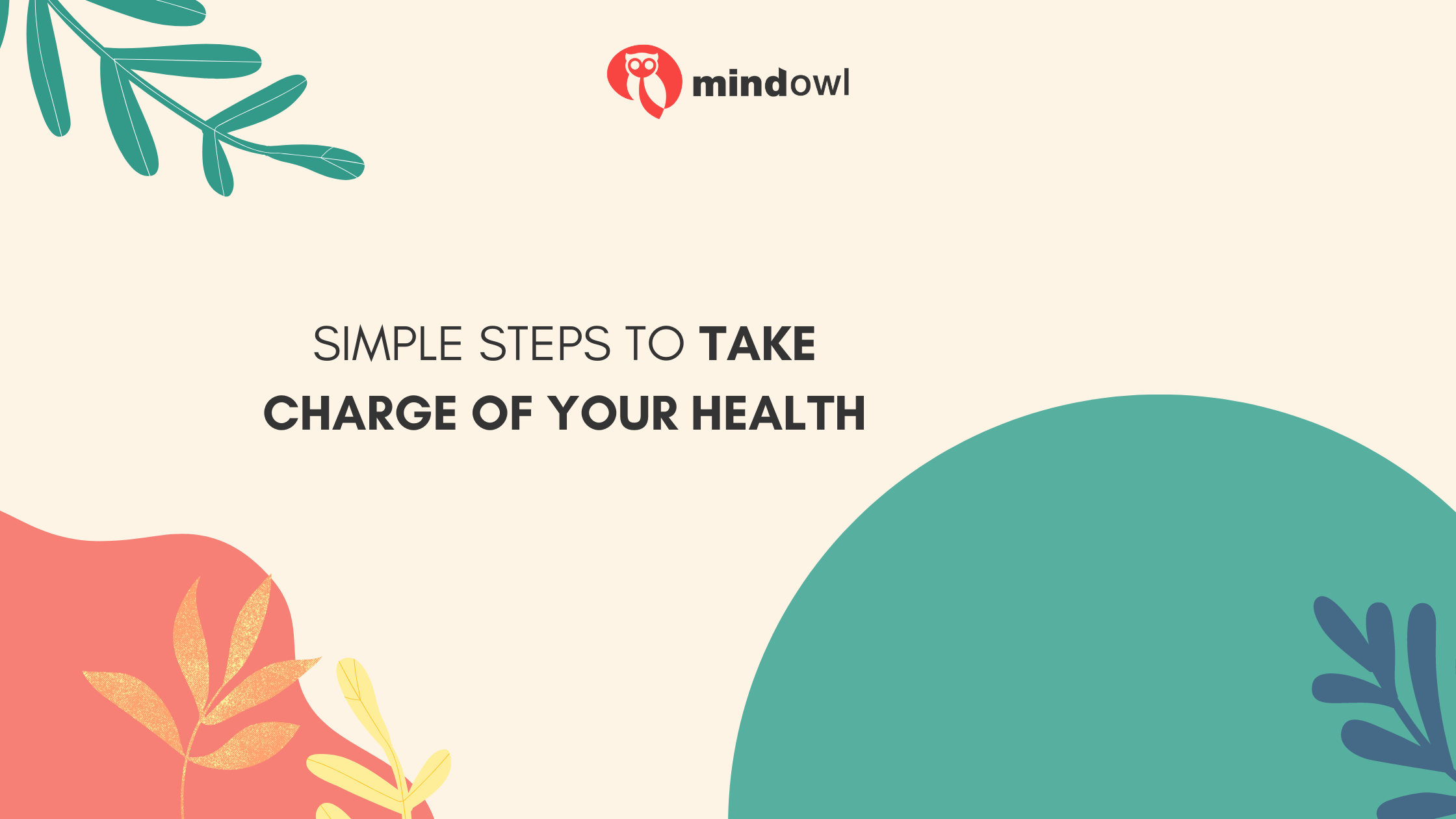Maintaining control over your health can sometimes feel like an uphill battle in today’s fast-paced world. With an abundance of information at our fingertips and increasingly busy lifestyles, it’s easy to feel overwhelmed. However, taking charge of your health is empowering and essential for leading a fulfilling life. This guide aims to provide you with practical advice on how to feel more in control of your health, emphasising the importance of proactive measures, informed decision-making, and self-compassion.
Understand Your Health Profile
The first step in taking control of your health is to gain a thorough understanding of your health profile. This includes knowing your family health history, understanding any current conditions you may have, and being aware of potential health risks. Armed with this knowledge, you can make more informed decisions about your health care and lifestyle choices.
Schedule Regular Check-ups: Regular health screenings and check-ups are crucial for the early detection and prevention of health issues. Make appointments with your GP, dentist, and other relevant healthcare professionals to keep on top of your health.
Know Your Numbers: Familiarise yourself with key health indicators such as blood pressure, cholesterol levels, blood sugar levels, and body mass index (BMI). These numbers can provide significant insights into your overall health and guide you in making healthier choices.
Genetic Testing: If you’re at risk for certain genetic conditions, consider genetic testing. This can offer valuable information about your predisposition to specific health issues and guide preventive measures.
Develop A Balanced Diet
Nutrition plays a pivotal role in our health and well-being. Adopting a balanced diet is essential for maintaining energy levels, supporting your immune system, and preventing nutrition-related diseases.
Eat a Variety of Foods: Ensure your diet includes a wide range of fruits, vegetables, whole grains, lean proteins, and healthy fats. A varied diet provides the nutrients your body needs to function optimally.
Limit Processed Foods: Processed foods often contain high levels of sugar, salt, and unhealthy fats. Reducing your intake of these foods can significantly improve your health outcomes.
Stay Hydrated: Drinking enough water is essential for good health. Water aids digestion, keeps your skin healthy, and helps flush out toxins from your body.
Address Issues That May Seem Minor Like Allergies
Often, we overlook minor health issues such as allergies, considering them inconsequential. However, addressing these seemingly minor concerns is a step towards taking comprehensive control of your health.
Identify Triggers: Keep a diary to track when your allergies flare up and identify potential triggers. This can help you avoid these triggers or prepare for them better.
Seek Professional Advice: Consult with an allergist or your GP to get a proper diagnosis and treatment plan. They may recommend medication, allergy shots, or changes in your environment to manage your allergies effectively.
Be Prepared: If you have severe allergies, always carry your medication (e.g., antihistamines, epinephrine) with you. You can find a range of medications for a variety of different health issues like hay fever at an online pharmacy. The Independent Pharmacy can help you find the medication you need without needing to go to the GP. And remember, informing friends, family, and colleagues about your allergies can also ensure you have support in managing them.
Exercise Regularly For Overall Well-being
The benefits of regular physical activity extend far beyond weight management. Exercise improves cardiovascular health, boosts mood, enhances sleep quality, and strengthens the immune system. Finding an activity that you enjoy and incorporating it into your routine is key to sustaining regular exercise.
Find Your Fit: Whether it’s walking, cycling, yoga, or team sports, choose activities that you look forward to. Enjoyment is a significant predictor of exercise adherence.
Set Realistic Goals: Start with achievable goals based on your current fitness level and gradually increase the intensity and duration of your workouts. This approach prevents burnout and reduces the risk of injury.
Incorporate Activity into Daily Life: Look for opportunities to be more active throughout your day. This can include taking the stairs instead of the lift, walking or cycling to work, or even engaging in active play with children or pets.

Prioritise Mental Health And Stress Management
Mental health is an integral part of your overall health and well-being. Stress, anxiety, and untreated mental health conditions can have a significant impact on physical health. Prioritising mental health and effective stress management can enhance your quality of life and improve your physical health.
Seek Support When Needed: Don’t hesitate to seek professional help if you’re struggling with mental health issues. Therapists, counsellors, and support groups can offer valuable assistance.
Develop Coping Strategies: Techniques such as mindfulness, meditation, and deep breathing exercises can be effective in managing stress. Find what works best for you and make it a part of your daily routine.
Stay Connected: Maintaining strong relationships with family and friends provides emotional support and can help you navigate through challenging times. Don’t underestimate the power of social connection in bolstering mental health.
Engage In Preventive Healthcare
Preventive healthcare involves taking measures to prevent diseases before they occur, rather than treating them after they develop. This proactive approach is crucial in taking control of your health, as it allows for early detection and management of potential health issues.
Get Vaccinated: Stay up to date with recommended vaccinations. Vaccines are a critical component of preventive healthcare, protecting against various infectious diseases.
Screenings and Check-ups: Regular health screenings for blood pressure, cholesterol, diabetes, and cancer can detect problems early when they are easier to treat. Discuss with your healthcare provider which screenings are appropriate for you based on your age, gender, and family history.
Healthy Lifestyle Choices: Many chronic diseases can be prevented through lifestyle choices. Avoiding smoking, limiting alcohol intake, and maintaining a healthy weight are all actions that significantly reduce the risk of developing chronic conditions.
Create A Sustainable Self-Care Routine
Self-care is a broad concept that encompasses anything you do to take care of your physical, mental, and emotional health. However, self-care practices must be sustainable and integrated into your daily life, rather than being seen as an indulgence or something that’s only addressed in times of stress.
Routine Health Practices: Incorporate practices such as skin care, adequate hydration, and sufficient sleep into your daily routine. These habits contribute significantly to your overall health and help prevent issues down the line.
Mindfulness and Relaxation: Activities such as yoga, meditation, and journaling can help reduce stress and improve mental health. Find activities that relax and rejuvenate you and make them a non-negotiable part of your routine.
Set Boundaries: Learn to say no and set boundaries around work and social obligations. Protecting your time and emotional energy is essential for maintaining health and preventing burnout.
Leverage Technology For Health Management
In the digital age, technology offers numerous tools that can assist you in managing your health more effectively. Technology can be a valuable ally in your health journey, from apps that track your fitness and diet to online platforms offering mental health support.
Health and Fitness Apps: Use apps to track physical activity, diet, sleep, and even mental well-being. Many apps also offer reminders to encourage healthy habits, such as drinking water and taking breaks to stretch or relax.
Telehealth Services: Take advantage of telehealth services for consultations with healthcare providers, especially for routine check-ups or minor health concerns. This can save time and make healthcare more accessible.
Online Support Groups: Join online communities or support groups related to health goals or conditions you’re managing. These platforms can offer support, advice, and encouragement from people who understand what you’re going through.
MindOwl Founder – My own struggles in life have led me to this path of understanding the human condition. I graduated with a bachelor’s degree in philosophy before completing a master’s degree in psychology at Regent’s University London. I then completed a postgraduate diploma in philosophical counselling before being trained in ACT (Acceptance and commitment therapy).
I’ve spent the last eight years studying the encounter of meditative practices with modern psychology.

